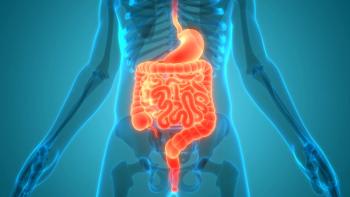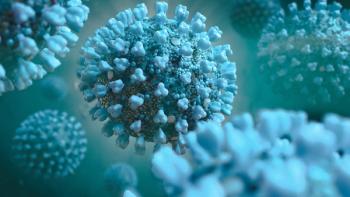
A Bright Future for Probiotics
More-rigorous scientific investigation today is bringing enhanced understanding of the mechanisms of these actions, which in turn will lead the way to more-precise clinical targets, higher-quality microbial preparations, and more-credible claims for probiotics.
Probiotics-the friendly bacteria in fermented foods-have been consumed for centuries for their reputed health benefits, but, as is often the case with folk remedies, scientific understanding has lagged behind popular acceptance. Consumption of probiotics has been said to produce beneficial health effects by “improving the microbial balance of the GI tract.” This vague description encompasses a broad range of activities, including effects on metabolism and absorption of nutrients, modulation of immune function, and prevention of inflammation. More-rigorous scientific investigation today is bringing enhanced understanding of the mechanisms of these actions, which in turn will lead the way to more-precise clinical targets, higher-quality microbial preparations, and more-credible claims for probiotics.
Probiotic health effects reported in humans run a wide gamut, from prevention and treatment of diarrhea (especially diarrhea in infants caused by rotavirus and diarrhea associated with antibiotic use), mitigation of certain allergic reactions, reduced recurrence of bladder cancer, prevention of respiratory infections, and treatment of urogenital infections. Laboratory and animal studies have also produced evidence of potential benefits against H. pylori-the infection associated with stomach ulcers-and inflammatory bowel diseases (IBDs). Thus, there appear to be both local effects in the GI tract and distant effects at other sites. This has led to a search for immunomodulatory actions that may account for both local and systemic effects, and for the seemingly opposed actions of up-regulation of immune responses against infection and down-regulation of immune responses associated with allergic reactions.
UNDERSTANDING IMMUNE FUNCTION
The immune system is comprised of a complex network of interacting cells, tissues, and chemical messengers that function in two broad categories of response to agents it perceives as foreign to the body. The first is a nonspecific or innate response: a rapid, inflammatory-mediated response to destroy any invader. The second is a specific or adaptive response, in which the immune system learns to recognize antigens to which it has previously been exposed and either destroys them if pathogenic or ignores them if benign.
A large component of the immune system resides in the mucosal tissues. In recent years the role of this mucosal immune system has begun to emerge as a key player in host immunity, comprising as much as 70% of total immune capacity. It includes immune cells emanating from lymphoid tissues located in and along the epithelial or lining areas of the respiratory tract, urogenital tract, oral cavity, and gastrointestinal tract. In the GI tract, clusters of immune tissues exist along the entire length of the small intestine, and specialized immune cells reside within the intestinal epithelium and its submucosal layers. The activity of the gastrointestinal-associated immune tissues is modulated by the intestinal microflora, which in turn are influenced by dietary probiotics.
THE MICROFLORA AND PROBIOTICS IN IMMUNITY
The traditional understanding of the role of probiotics in immunity relates to the GI microflora as a physical barrier to pathogens passing through the GI tract. Probiotic bacteria adhere to the epithelial cells of the intestine, blocking adhesion by pathogens and starving them of nutrients. Probiotic bacteria also produce hydrogen peroxide and other substances that directly kill pathogens. This mechanism of action is most probably the type that occurs in the colon.
A newer, emerging picture involves molecular communication by the microflora to stimulate recruitment of immune cells and activate appropriate immune and inflammatory responses. Research has shown that probiotics can up-regulate genes that encode for chemokines and cytokines, the chemical messengers that guide and manage immune responses, both locally and in other mucosal tissues. This mechanism occurs in the small intestine.
Certain types of immune cells-the T and B lymphocytes-develop in the lymphoid tissues found beneath the surface of the small intestine. Research suggests that these immune cells recirculate within the mucosal system, potentially providing protection at sites distant from the intestine.
One subpopulation of T cells is particularly relevant to a discussion of probiotics: the type 1 or T1 helper cells, which secrete interferon gamma. Low levels of interferon gamma and/or T1 helper cells have been associated with increased susceptibility to disease; conversely, higher levels of interferon gamma are associated with higher resistance to disease. Scientific studies have shown that probiotics can help restore T1 helper cell activity and increase interferon gamma levels. This is one mechanism by which probiotics may strengthen immunity.
ONE SIZE DOESN’T FIT ALL
In laboratory and animal studies, different strains of probiotics have demonstrated a variety of positive effects on measurements of immune response, including increased proliferation of T and B cells; increased production of cytokines; stimulation of natural killer cells; and increased activity of macrophages. Not all probiotics elicit the same responses; the form of immunomodulation initiated varies among different strains of the bacteria.
For example, in a study comparing the interactions of seven different lactic acid bacterial strains with lymphoid cells, it was found that some strains exhibited greater ability to stimulate nonspecific immune response, while others induced specific immunity. These results suggest that the immunomodulatory effects of lactobacillus bacteria may be strain-specific.
Another recent study observed that a specific strain of L. acidophilus, LAFTI L10 supplied by DSM Nutritional Products Inc. (Parsipanny, NJ), enhanced clearance of the yeast infection Candida albicans from the oral cavities of mice more rapidly than L. fermentum. These studies illustrate the principle that some probiotics or combinations work better against some diseases than others. The exact “recipes” of probiotics for different conditions are a target of current scientific research.
”UP-REGULATION” OF IMMUNE RESPONSES AGAINST INFECTIONS
When the immune system is weakened, infections are more likely to occur. These can take the form of bacterial, viral, yeast, or fungal infections. There is evidence that probiotics can “up-regulate” the components of the immune system needed to fight these infections. Data from more than 15 randomized, controlled trials have shown a benefit of some probiotics in reducing the severity of diarrhea caused by rotavirus infection, a common and sometimes serious disease in very young children. In clinical trials, probiotic treatment has consistently shortened the duration of diarrhea in infants by about 25–30%, both in those treated at home and those in the hospital.
Evidence that antibodies produced in the GI tract can recirculate within the mucosal system supports the contention that probiotics influence immunity in mucosal tissues distant from the GI tract, such as those in the oral cavity, respiratory tract, and urogenital tract.
For example, consumption of probiotics has been shown to alleviate vaginosis in women and to reduce the incidence of urinary tract infection in infants. In an animal model, oral and bronchial infections were suppressed by oral administration of lactobacilli. The yeast infection Candida albicans can affect the mouth, the lower gastrointestinal tract, the urinary and vaginal tract, as well as the skin. In the mouse study previously mentioned, clearance of the yeast infection Candida albicans from the oral cavities of mice was enhanced following administration of LAFTI L10 L. acidophilus, with complete eradication of the infection by day 6.
In this model, candidiasis triggers an inflammatory response and stimulates cellular immunity. Due to the involvement of these mechanisms, it is considered a better model for analysis of host immune mechanisms than clinical models of vaginal candidiasis. L. acidophilus appeared to stimulate production of cytokines as well as nitric oxide, supporting the concept that the probiotic has the ability to restore the activity of T cells and drive the common mucosal immune system.
A similar phenomenon may occur in humans, as suggested by evidence that probiotics boost the power of vaccination against virus. In a double-blind clinical trial, ingestion of probiotics prior to polio vaccination increased the concentration of polio virus–neutralizing antibodies in serum by 2–4 times.
”DOWN-REGULATION” OF ALLERGIC REACTIONS
A number of health conditions are related to failure of the immune system to develop appropriate tolerance for certain antigens. Food allergies are a familiar example; autoimmune diseases such as Crohn’s disease and ulcerative colitis may be others. The ability of probiotics to modulate this aspect of immunity has been demonstrated in several studies. In a mouse model of egg allergy, oral probiotics shifted the balance of proinflammatory and antiinflammatory compounds so as to alleviate the hypersensitivity. Atopic eczema is an allergic reaction that produces inflammation and skin lesions in newborn infants. In controlled studies, milk-sensitive infants with atopic dermatitis showed significant improvement of their eczema and reduced intestinal inflammation after being fed a probiotic-fortified formula for two months.
In another study, pregnant mothers with a family history of atopic dermatitis, allergic rhinitis, or asthma and their newborns were given either a lactobacillus probiotic or placebo for six months. By the time the children were 2 years old, atopic eczema had occurred in only half as many children in the treated group as in the control group. Immune dysregulation is believed to be partly responsible for IBDs such as Crohn’s disease, ulcerative colitis, and pouchitis (an infection that frequently occurs in patients who have had surgery for ulcerative colitis). In a randomized controlled trial, a mixture of eight strains of probiotic bacteria was compared with placebo to prevent recurrence of relapsing pouchitis in patients with IBD. After nine months, 85% of the probiotic group was still symptom free, while all patients in the placebo group had relapsed within four months. In a second study using the same probiotic mixture, 90% of the probiotic group was symptom free after one year versus 60% of the placebo group.
There is evidence to suggest that the effects of probiotics may vary in different people, depending on the underlying conditions. For example, in one study, a probiotic-fortified milk was simultaneously given to normal, healthy subjects in a control group and to a group of subjects who were hypersensitive to milk. The responses of the two groups were different, though both were positive: in healthy subjects, the probiotic stimulated immune response, but in the milk-hypersensitive subjects, it decreased the immune (allergic) response to milk.
GETTING THE BENEFITS
The volume of research on probiotics has increased rapidly during the past decade and is continuing to gain momentum. Currently the evidence is quite promising that probiotics may benefit a variety of health conditions by normalizing immune response-up-regulating in some cases and down-regulating in others. Continued research is required to answer basic questions: Which strains for which conditions? At what levels of intake? Are effects different in different population groups, e.g., infants, elderly, those with hypersensitivity to different antigens? It is hoped that new studies will fill the knowledge gaps and substantiate what many people have already experienced: better health with probiotics.
Caroline Brons is a senior marketing manager for DSM Nutritional Products USA (Parsippany, NJ). She has held positions in project management, sales, and marketing with Nedlloyd Lines, Nissan Motor Co., and DSM Food Specialties in Tokyo, Singapore, and The Netherlands prior to coming to the United States in 2003.
Newsletter
From ingredient science to consumer trends, get the intel you need to stay competitive in the nutrition space—subscribe now to Nutritional Outlook.




